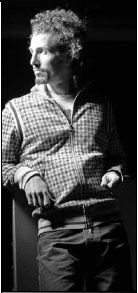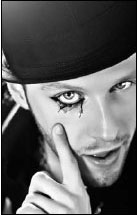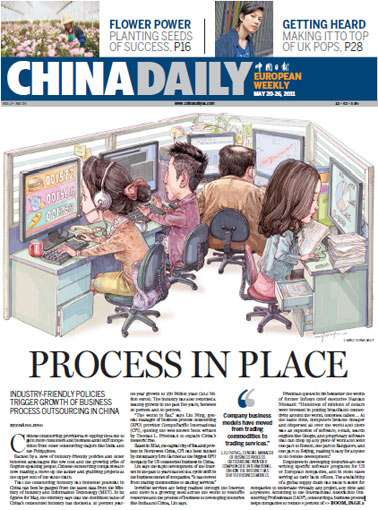Art
Rhythms of the night
Updated: 2011-05-20 08:07
By Chen Nan (China Daily)
|
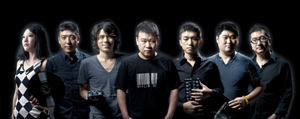 Wang Miao (far left) and the Acupuncture Records team. Photos Provided to China Daily |
The 2011 Intro Electronic Music Festival marks a high note in the genre's development on the mainland. Chen Nan reports.
Beijing's pulse will throb to the rhythm of electronic beats during this weekend's 2011 Intro Electronic Music Festival.
The festival will pack more than 80 DJs and live bands into 798's 20,000-square-meter outdoor space D-Park on May 21 and 22.
|
Josh Wink. |
The third celebration of the annual festival will shine with the brightest electronic music stars, including Josh Wink, Michael Beat, MC Shayon and Sodeyama. They will take the stage alongside up-and-coming artists and local darlings.
"We aim to bring the hottest and most interesting combinations of the international artists so audiences get a taste of the world's most avant-garde electronic sounds," says festival co-organizer Wang Miao, who is also the co-founder of Acupuncture Records.
"This year's DJ and VJ lineups are stronger than the previous two years', and we have original Chinese electronic musicians from Shanghai, Guangzhou and Chongqing," she says. "We attract artists from all over the world while promoting local artists and original Chinese electronic sounds."
The event's expansion this year has been made possible by the genre's growth in the country. Also, the previous years' successes have generated a reputation that lures more international artists.
"The first year we only had 40 DJs, and the big name was Chris Liebing," Wang recalls.
"There were more than 8,000 audience members then, which exceeded our expectations."
The 2010 festival hosted more than 60 performers, 12,000 fans and three stages. This is the first year Intro will last for two days, and the crowd is expected to reach up to 30,000.
Those who don't know anything about electronic music will find Intro to be an ideal introduction, Wang says.
The genre occupied a tiny part of the country's music scene before Acupuncture's founding. About a dozen artists nationwide formed a tight circle engaged in private parties and music swapping, and most fans were foreigners.
|
MC Shayon. |
"People in Beijing or any Chinese city used to not have the culture of dancing in clubs at night. They'd spend evenings dining with friends," Wang says.
"But more people, especially younger ones, are hitting the nightclubs. It's becoming a lifestyle for them."
Wang recalls meeting core Acupuncture member Weng Weng 10 years ago, when the 20-year electronic music veteran was performing at a club she was visiting.
"There were some commercial clubs in Beijing in 2000, where people would sit together, drinking, playing cards and chatting," recalls Wang, who was then a heavy metal fan studying economics at Renmin University.
"It was very noisy, and I didn't understand how they could hear one another. But when I went to a small club where Weng Weng played music on the stage for dancing crowds, I realized I'd been going to the wrong places to hear electronic music."
The duo founded Acupuncture Records in 2007 and opened its headquarters on the capital's famous bar street Sanlitun.
Acupuncture hosted weekly performances and toured the country with DJs from home and abroad.
The earlier parties attracted mostly expat crowds of about 100. But as commercial venues went belly up over time, fans knew there was a place to go to dance.
Acupuncture has also presented artists at the Modern Sky Music Festival and Strawberry Music Festival, which raised the visibility of their artists and brand, and increased audience exposure to electronic music.
"I believe passion is key to keeping the company going," Wang says.
"The Intro Electronic Music Festival is like a radical transformation."
Wang believes electronic music is appropriate for the times.
"We live in the world of technology, which is the essence of electronic music," Wang says.
"Dancing is a part of human nature that has been suffocated by the pressure of our modern lives. Dancing and electronic music work together like a chemical reaction."
Wang came up with Acupuncture Records' name after visiting a traditional doctor.
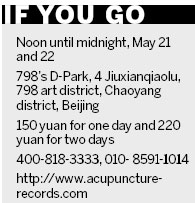 |
"I went with other friends, who often stayed up all night like me," she recalls.
"I learned acupuncture shares similarities with electronic music, such as accurate repetition, and both doctors and DJs use needles. Acupuncture is from China, and we want our record company to be made in China, too."
The company holds up to 60 events a year and opened its own club, The House, in February 2011.
The three-story venue, which is decorated with contrasting warm and cool colors, is near the north gate of Worker's Stadium, the iconic heart of the capital's nightlife. It hosts weekly shows with DJs from home and abroad that last until dawn, and has the capacity to pack in about 1,000 fans.
"Because of electronic music's late start and slow development in China, we still face problems promoting the genre and local DJs," Wang says.
"It takes time. But we believe music is like acupuncture - both nurse our bodies and minds."
E-paper
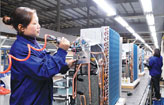
Thawing out
After a deep freeze in sales during the recession, China’s air conditioner makers are bouncing back
Cool Iron lady
Of good and evil
Build on security initiatives
Specials
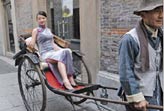
Memory lanes
Shanghai’s historic ALLEYS not just unique architecture but a way of life
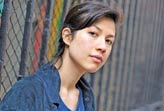
Great expectations
Hong Kong-born singer songwriter rises to the top of the UK pops.
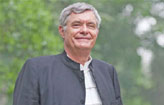
A diplomat of character
Belgian envoy draws on personal fascination to help build China ties.
